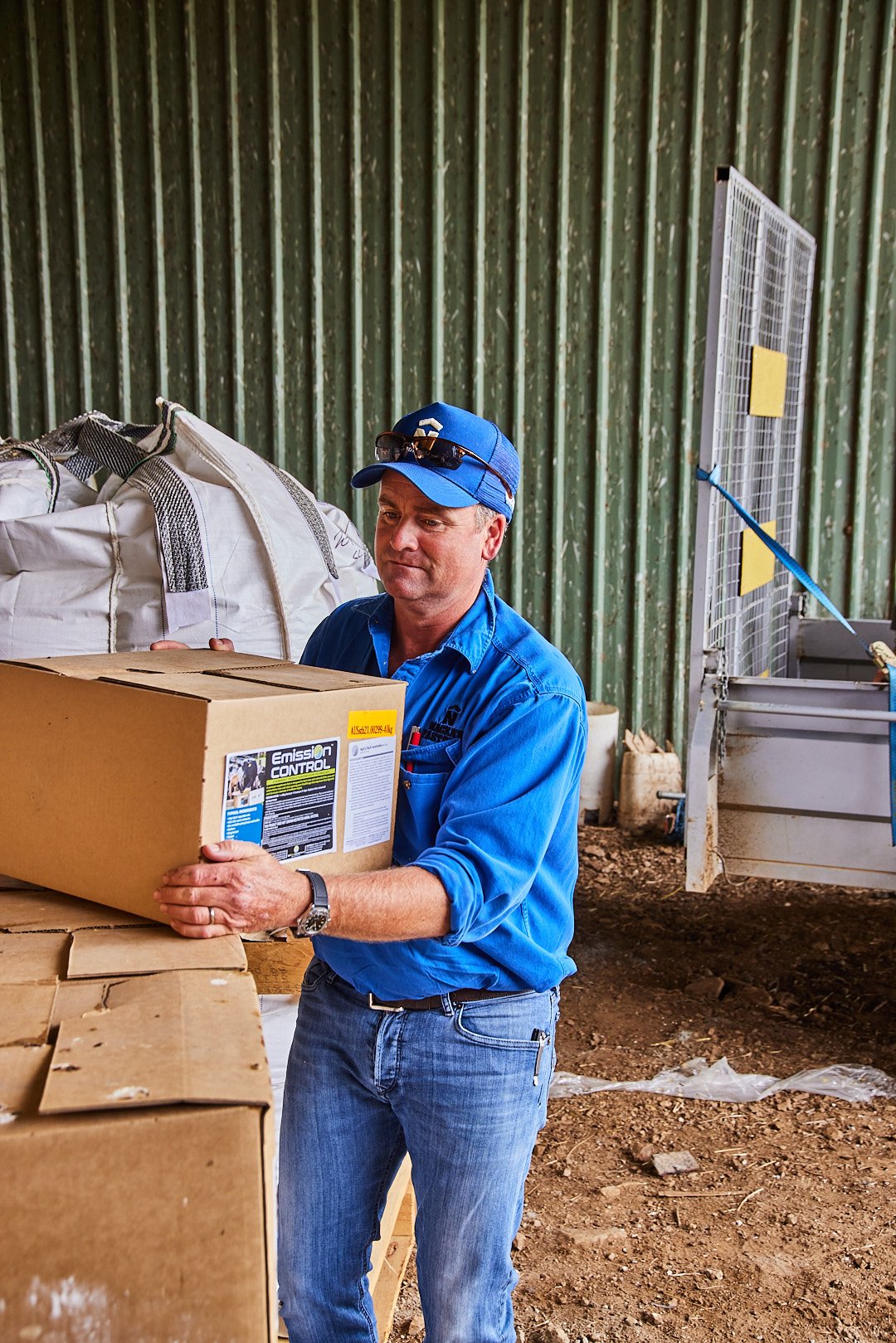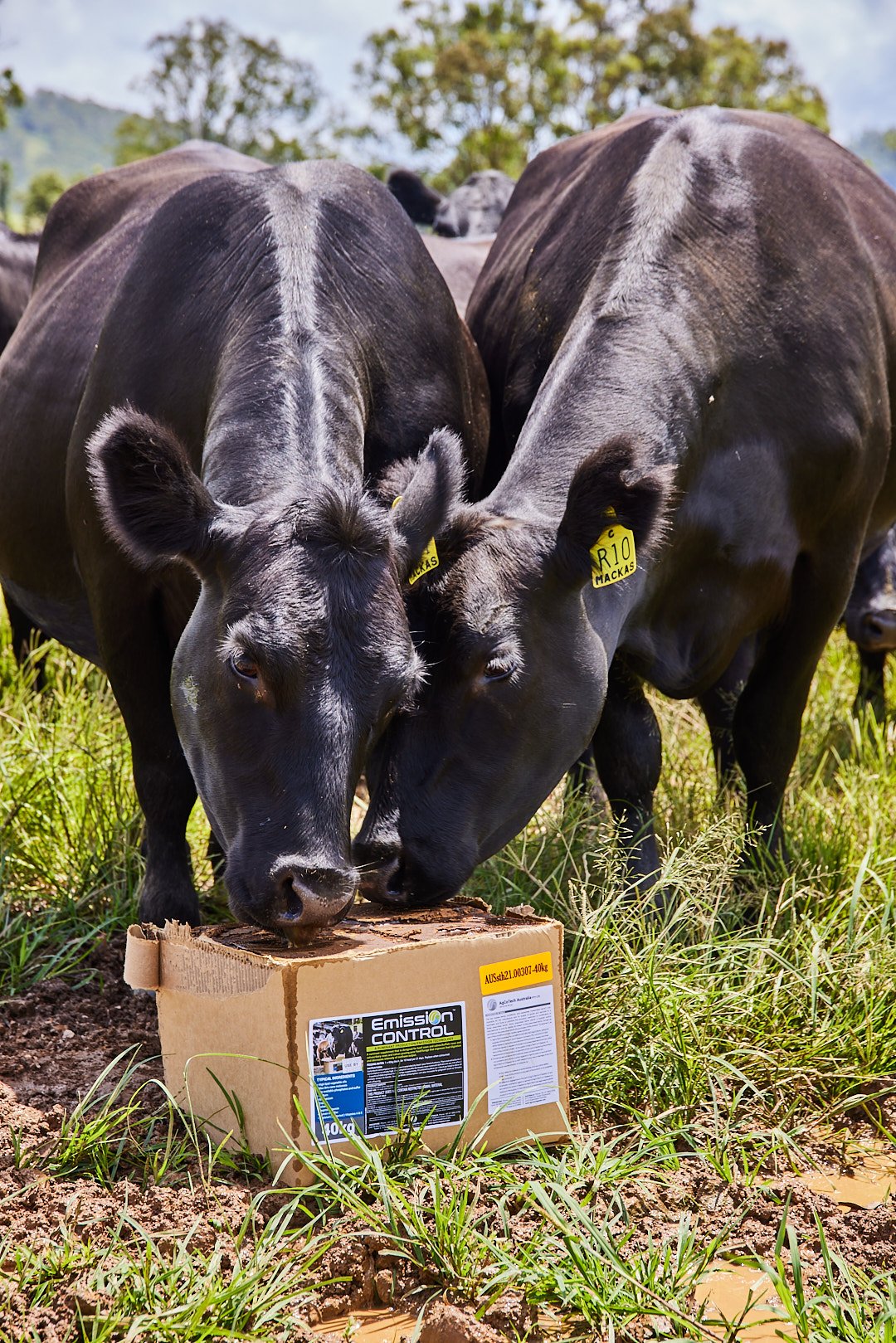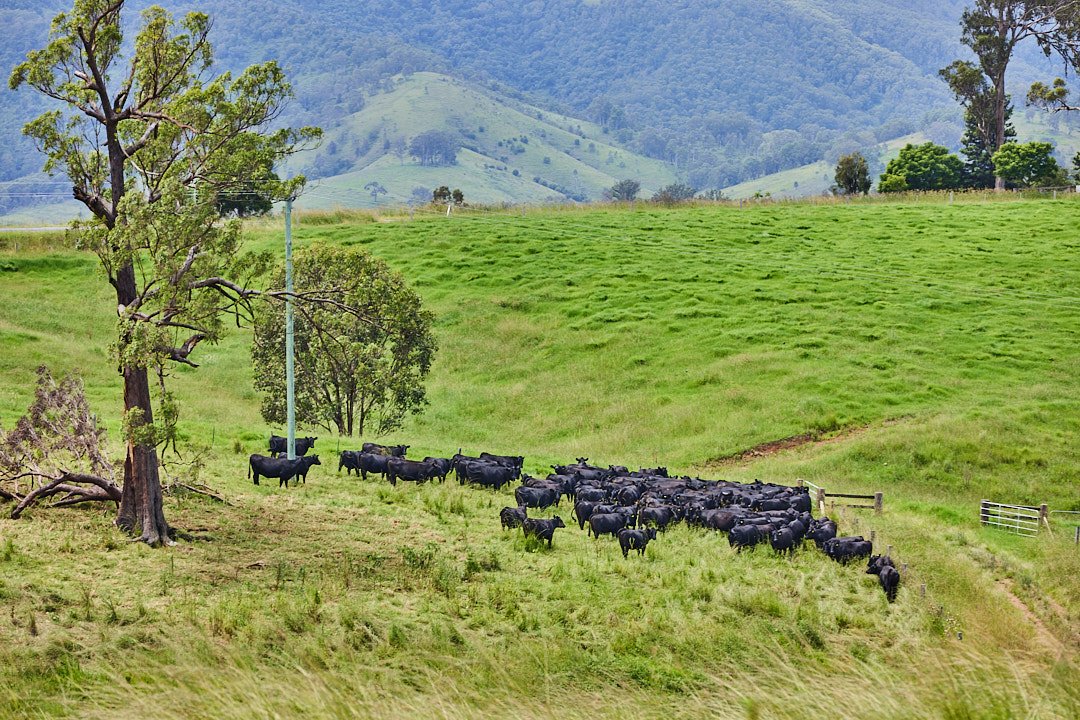“Carbon neutral: Emission control blocks solve methane puzzle”
March 2022
MAJOR Angus beef producer Robert Mackenzie is well on his way to making his large scale integrated livestock and beef business carbon neutral, with every intention of making his 3500 head breeder operation carbon negative.
Focused on measuring and managing the carbon in the soil, the mix of pastures and trees, the impact of livestock, and the role of genetics, the innovative producer is also using groundbreaking emission control blocks to reduce the amount of methane that his cattle are producing.
The multi-modal molasses-based blocks have been developed over the past five years by Brisbane-based animal nutrition company AgCoTech in conjunction with the University of Sydney.
Various formulations of the world's first blocks have been extensively tested in broadscale grazing situations in both Australia and South East Asia to measure the effectiveness of the break-through technology.
At Macka's Australian Black Angus Beef, the consumption of a single 40kg block over 200 days is delivering an impressive 350kg average reduction in methane emissions per animal, in addition to delivering significant health benefits.
"Managing our carbon footprint is very much driven by the reality that we must meet the expectations of our consumers," Mr Mackenzie said.
"Carbon, methane, greenhouse gases, animal welfare... these are all issues at the forefront of consumers' minds and are issues we have to address if we are going to continue to enjoy the support of our customers.
"If we don't, the beef industry risks being left behind. Fortunately, we now have the tools to take control of the situation and make sure we remain on the front foot."
Mr Mackenzie, who runs 3500 Angus breeders on eight properties covering 6000 hectares near Gloucester on the hinterland of NSW's lower Mid North Coast region, said there was a major upside to achieving carbon neutrality.
"Ultimately we're producing more beef at a lower cost and that is good for business in anyone's language," he said.
"Genetically superior, healthier animals that put more of the energy they consume into producing beef, rather than expelling it as methane, are more profitable."
In essence, the emission control blocks increase the digestive capability of the rumen, enabling livestock to more readily digest fibre, rather than produce greenhouse gases.
Mr Mackenzie said the AgCoTech blocks were also helping to achieve better health outcomes.
"The magnesium in the blocks also appears to limit grass tetany, while vegetable oils helped reduce the incidence of bloat," he said.
"We're certainly very impressed by these emission control blocks as one of the tools we can use on this journey.
"This real and practical measure is a massive step forward for the Australian beef industry and may allow us to participate in the potentially lucrative, voluntary carbon trading market as well as in markets which are demanding carbon-neutral beef including airlines, cruise ships and high-end hotels and restaurants."
The red meat industry through Meat and Livestock Australia has already made an ambitious commitment to be carbon neutral by 2030, an objective that is looking increasingly challenging without the rapid adoption of methane busting solutions.
Article by Journalist Mark Phelps Published in Queensland Country Life






